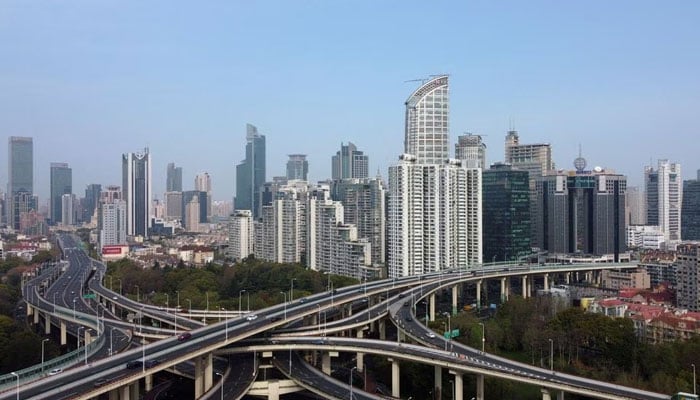China's Shanghai records hottest day in 100 years
In May, UN warned that it is near-certain that 2023-2027 will be the warmest five-year period ever recorded
May 29, 2023

For the first time in 100 years, China's financial capital Shanghai has recorded Monday as its hottest day, according to the city’s meteorological service, breaking the earlier records of high temperature by a full degree, reported AFP.
According to a post on the weather service’s official Weibo account, it read: "At 13:09, the temperature at Xujiahui station hit 36.1 degrees Celsius [97 degrees Fahrenheit], breaking a 100-year-old record for the highest temperature in May."
Scientists have noted that global warming is exacerbating adverse weather, with a recent report from the UN’s Intergovernmental Panel on Climate Change (UNIPCC) warning that "every increment of global warming will intensify multiple and concurrent hazards".

The temperature at the metro station, later in the afternoon, in central Shanghai jumped as high as 36.7 degrees Celsius, the meteorological service for the eastern Chinese city said.
"That put it a full degree above the old record, 35.7 degrees Celsius, which has been recorded four times previously — in 1876, 1903, 1915 and 2018," according to the weather service.
In May the United Nations warned that it is near-certain that 2023-2027 will be the warmest five-year period ever recorded, as greenhouse gases and El Nino combine to send temperatures soaring.
The UN’s World Meteorological Organization (WMO) highlighted that “there is a two-thirds chance that at least one of the next five years will see global temperatures exceed the more ambitious target set out in the Paris Accords on limiting climate change.
Prediction of 1.5C ceiling breach
Earlier in May, scientists made a disastrous prediction in saying that our already heated world will likely breach the temperature ceiling of 1.5 degrees Celcius for the first time in 2027.
The researchers have said that the temperature is increasing due to the surge in carbon emissions from human activities.
Breaching the 1.5 ceiling means that the world would become warmer than it was when there were no fossil fuel emissions during the second half of the 19th century.
The emissions started as industrialisation began.
The 1.5C has been the main agenda of climate negotiations among world leaders. Under Paris Agreement 2015, countries concurred to bar their emissions to prevent the temperature from rising.
If the world were to see the temperature increase to 1.5C for a decade, there would be an adverse impact on world climate with longer heatwaves, severe weather conditions and wildfires.











